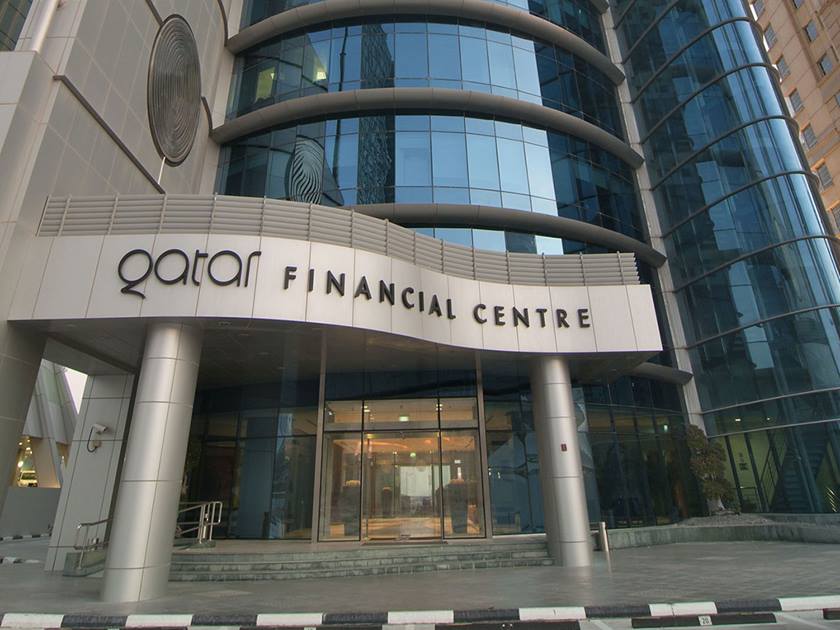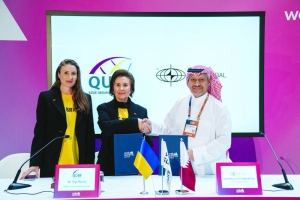Qatar and cryptocurrency: A cautious relationship

QFC’s Digital Assets Framework 2024, offering legal guidelines for tokenisation, could attract local and international entities, raising questions about its impact on Qatar’s relationship with the cryptocurrency market.
It was only six years ago that Qatar banned the use of cryptocurrencies.
The Supervision and Control of Financial Institution Division at Qatar Central Bank (QCB) issued a notice to all Qatar banks in 2018, describing Bitcoin as “illegal and unsupported”.
The memorandum warned that trade in cryptocurrencies involves high risks of price volatility and could be used in financial crimes. As a result, all Qatar banks dealing with cryptocurrencies were in violation of the notice and would be subject to penalties.
In January 2020, the Qatar Financial Centre (QFC) Regulatory Authority officially banned all crypto asset services in the Gulf region. The ban covered “anything of value that acts as a substitute for currency, that can be digitally traded or transferred and can be used for payment or investment purposes”.
As a part of Qatar’s efforts to boost its growing digital economy, the QFC Digital Assets Framework 2024 was released earlier this month.
Qatar Central Bank Governor Sheikh Bandar bin Mohammed bin Saoud Al Thani said the framework launch “marks a significant milestone in our journey towards realising the Third Financial Sector Strategy”.
According to Dr. Mazen El-Masri, an Associate Professor of Information Systems at Qatar University (QU) and CEO of Genesis Technology, Qatar was wise to exercise caution regarding the use, ownership, and trade of cryptocurrencies.
“Crypto is banned in Qatar, and it will continue to be banned for the foreseeable future until, I believe, the regulators and users form a clear framework to adequately evaluate crypto projects,” El-Masri told Doha News.
El-Masri said the difference between crypto and non-crypto digital assets is that the value of crypto assets is based on supply and demand and is highly speculative whereas other non-crypto digital assets can be associated with real value such as real estate, bonds, company stocks, and gold.
El-Masri, who also heads the research project “Secure End-to-End Blockchain-Based Solution to Trade Finance: The Legal, Technological, and Economic Framework”, began working on a significant digital asset project in mid-2017. In 2019, his team submitted a proposal to Qatar National Research Fund, which successfully received funding the following year.
“It was a major project. The value of the project was $3.2m,” El-Masri told Doha News. “The proposal was reliant on the fact that regulations will eventually come about to support the use of crypto at least.”
In 2022, Qatar’s lack of regulatory progress on cryptocurrency stalled the project. As a result, El-Masri pivoted to focus on the underlying technology rather than the financial aspects of crypto.
Why does the new framework not cover cryptocurrencies?
El-Masri noted that the QFC released a digital asset regulatory framework for public consultation, specifically designed to address the tokenisation of physical assets.
Initially, Qatar’s regulations on digitising physical assets were quite restrictive. However, this month, the QFC introduced the Investment Token Rules (TOKN), significantly expanding the range of assets eligible for tokenisation.
Tokenisation was implemented to bolster security by substituting customers’ primary account numbers with unique payment tokens, thereby mitigating risks of hacking and credential theft.
Under the new framework, companies can now apply for token service provider licenses, which authorise them to issue these secure payment tokens.
However, the framework excludes cryptocurrencies because they function as alternatives to fiat currencies, lack government backing, and do not represent any physical assets. Similarly, stablecoins are excluded for the same reasons. However, tokens representing rights to tangible assets, such as gold, are permitted.
The volatility in cryptocurrency often stems from speculative investor behaviour, supply dynamics, and, in some cases, the utility of the coin itself.
El-Masri explains that investment attitudes towards crypto are influenced by the “greed-fear index,” reflecting how investors’ greed and fear impact their decisions.
With the global cryptocurrency market cap exceeding $2.1tr, El-Masri notes that significant market shifts could be triggered by major institutions like BlackRock. In contrast, other digital assets generally experience more stable fluctuations and are tied to tangible value.
Other digital assets fluctuate more subtly and are often associated with tangible value of the token itself.
Although the anti-crypto regulations in Qatar meant the major project he headed had to redirect to achieve other objectives, El-Masri believes this cautious attitude was one of the wisest decisions that Qatar has made.
“I could tell you for a fact over 90 and maybe more, maybe 99 percent of the crypto projects are scams or have no future. From the thousands or maybe tens of thousands of crypto projects, I could list no more than 50 that make sense,” he said.
“To give that burden on a young, inexperienced person without the control and the support of the government, to go and invest maybe large amounts of money would affect our economy here in Qatar,” El-Masri went on to say.
The QU professor believes that more time is needed to develop methods for assessing genuine crypto projects and to clarify the concept of a crypto economy for investors, which in turn will enable them to make informed decisions.
“I look back and think maybe regulations related to digital assets and tokenisation could have been produced earlier, maybe not much earlier, because we needed time to learn and to compare how other countries are doing it and get the best decision possible,” he said.
Related
QUBF launches ‘Qatar-Ukraine Tech and Innovation Committee’
Dr Olga Revina, chairperson of QUBF, and Sheikh Mansoor bin Khalifa al-Thani, fou
Initiative to support digital innovation in Qatar launched
Assistant Undersecretary for Digital Industry Affairs at MCIT Reem Al Mansoori, and General Manager of Microsoft Qatar Lana Khalaf exchanging documents after s
MCIT, Microsoft Sign Partnership Initiative to Support Digital Innovation and…
As part of its efforts to enhance digital innovation and support the growth of startups in the country, the Ministry of Communications and Information Technolog
IIA Qatar hosts session on tech-driven transformation in internal audit
Officials pose during the seminar hosted by Institute of Internal Auditor Qatar Chapter. Doha, Qatar: The Institute of Internal Auditor Qatar Chapter r












